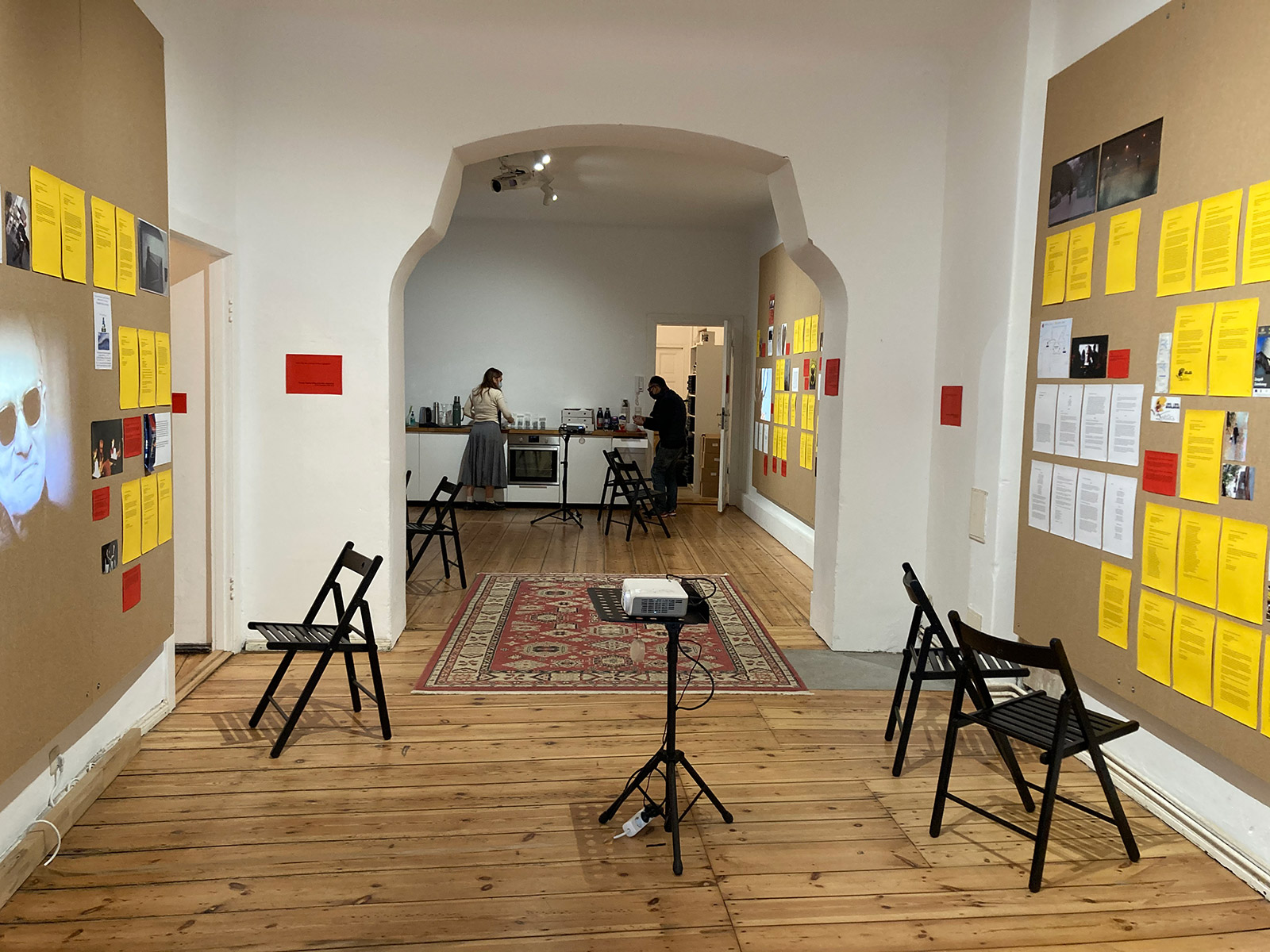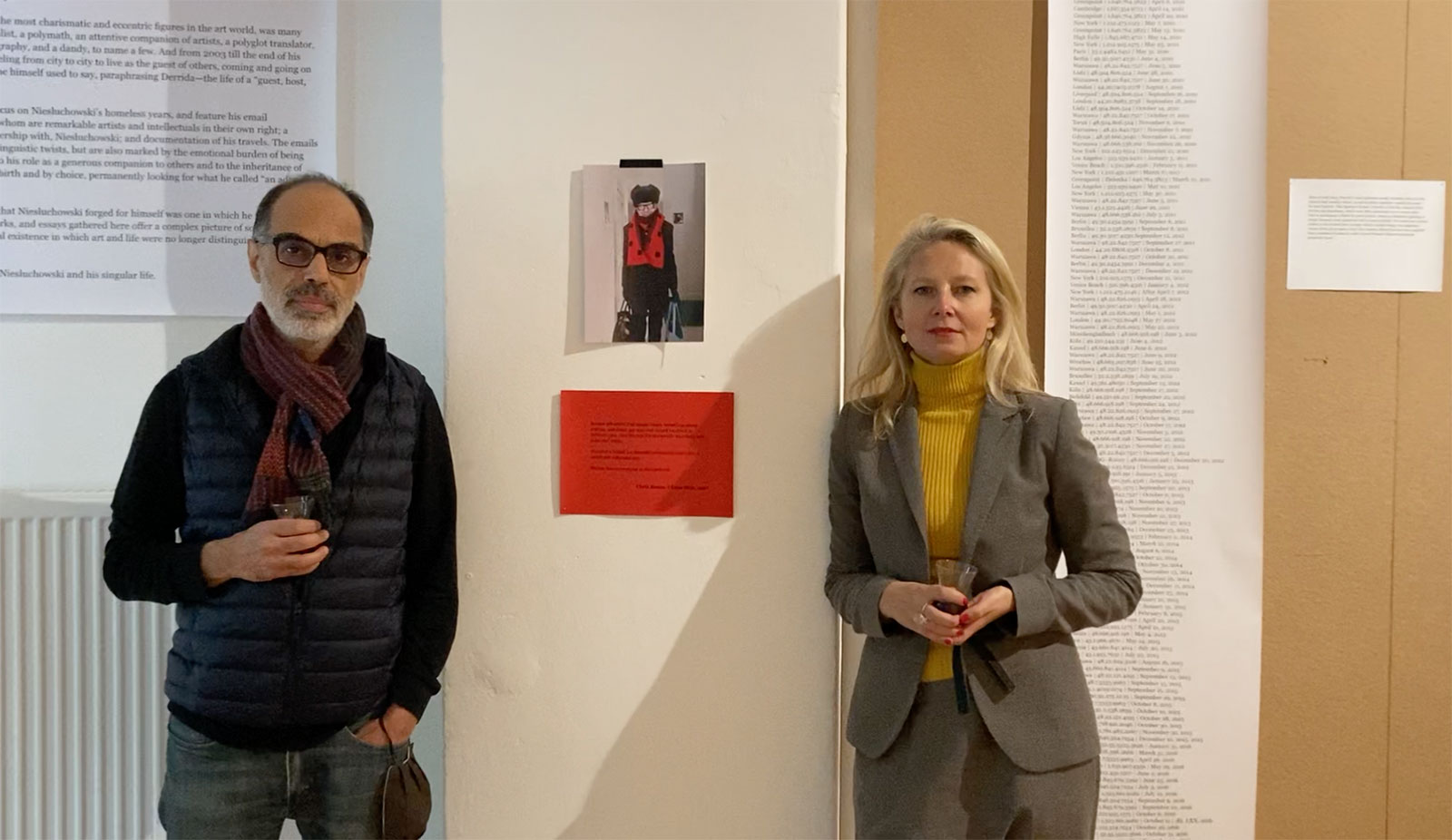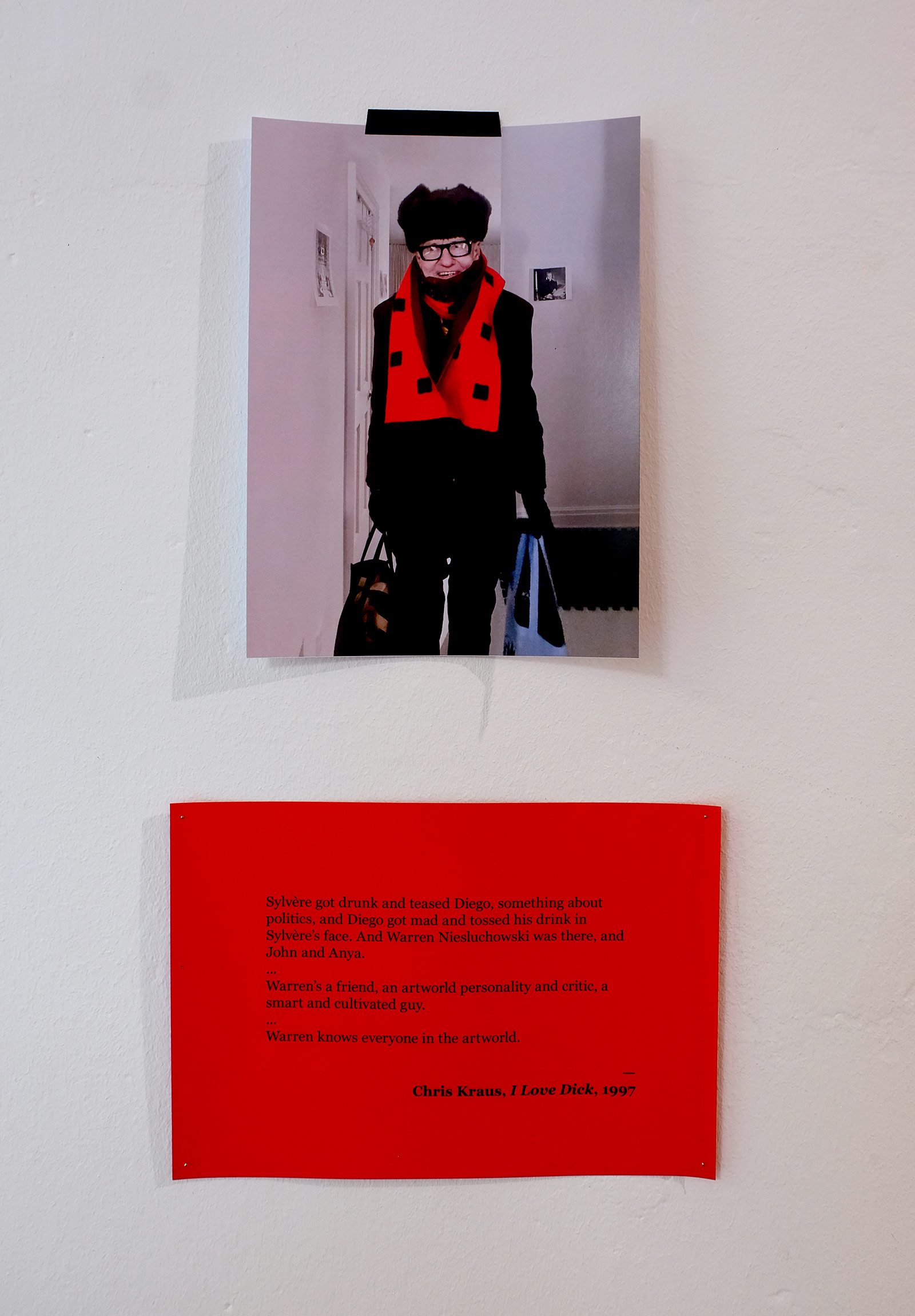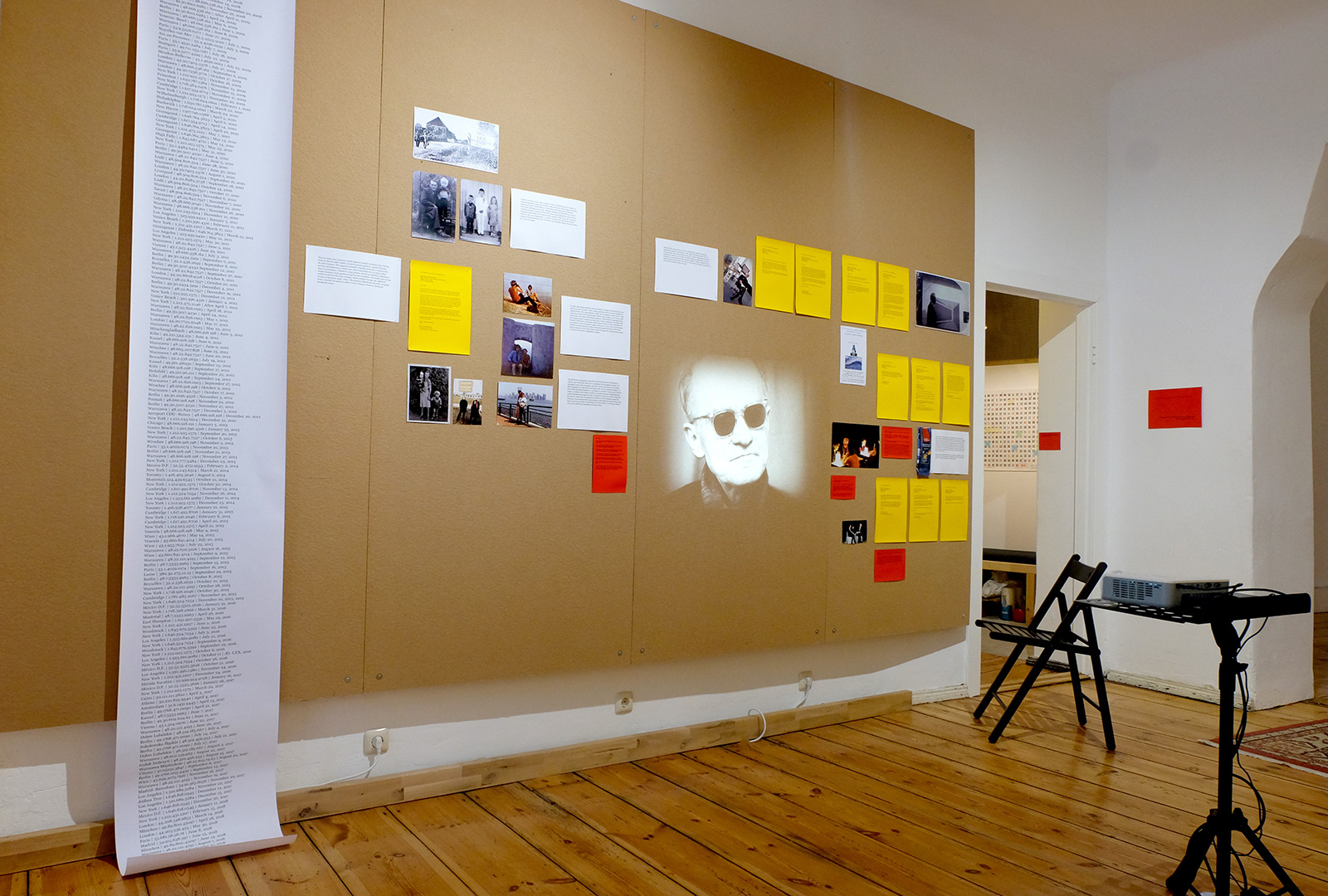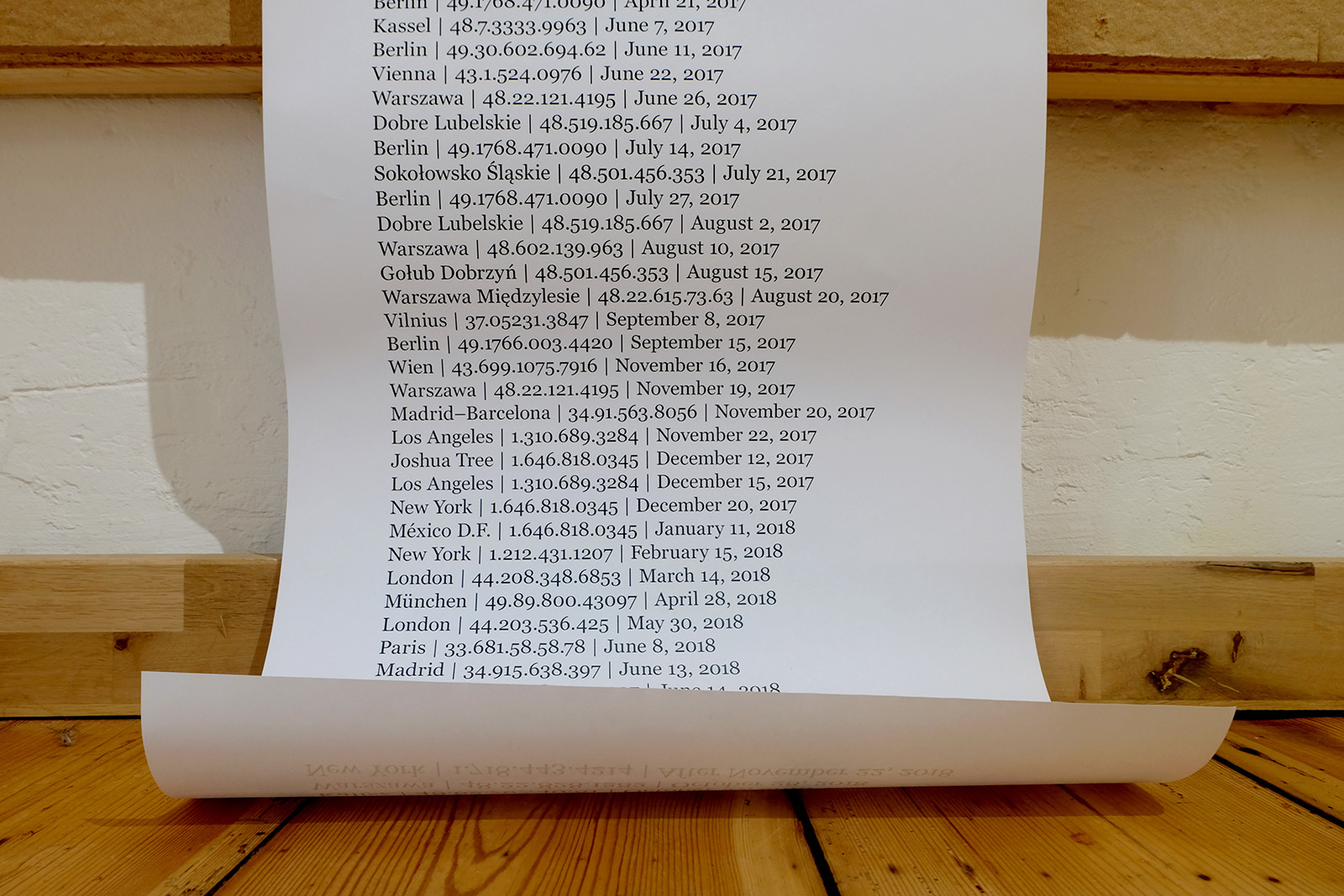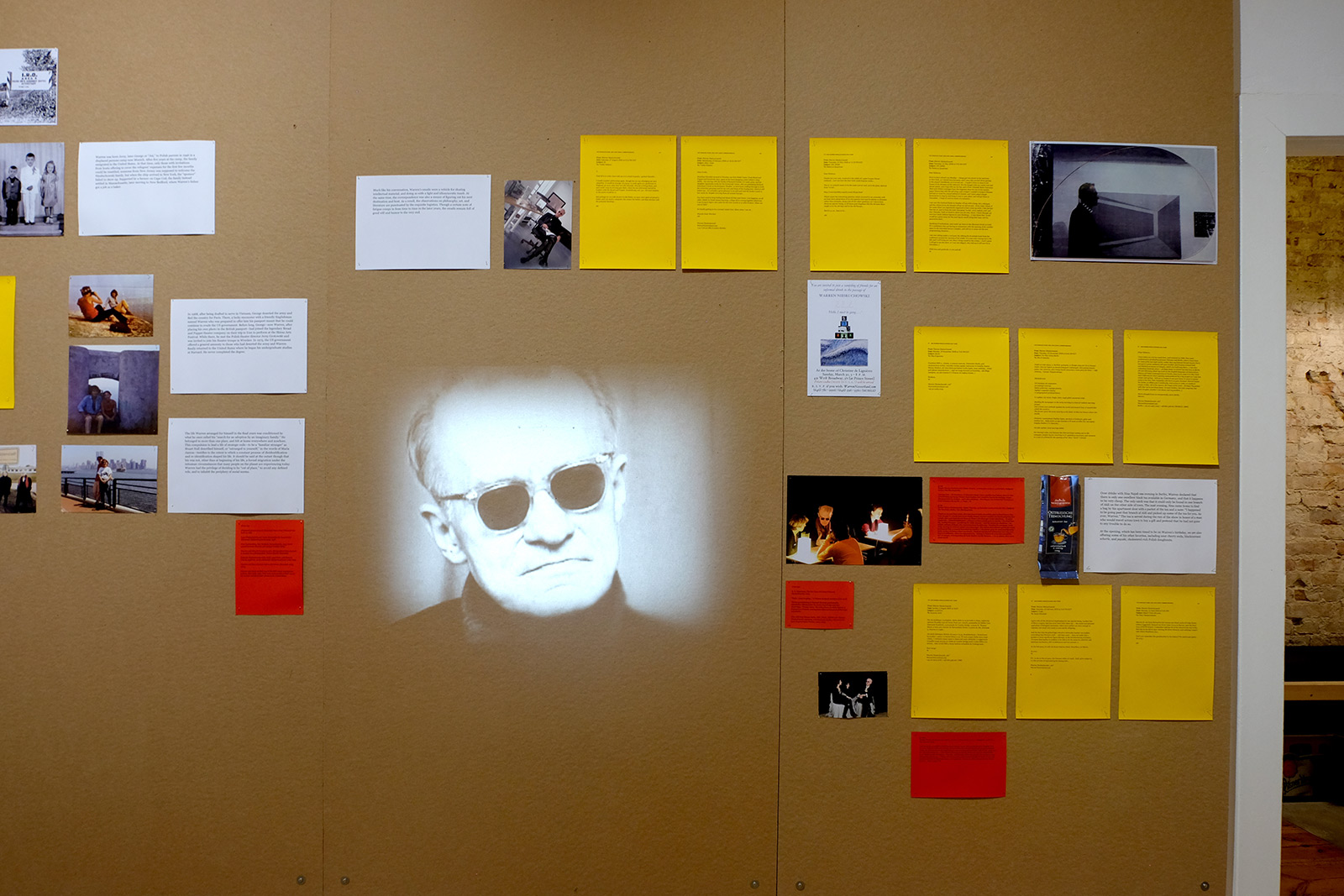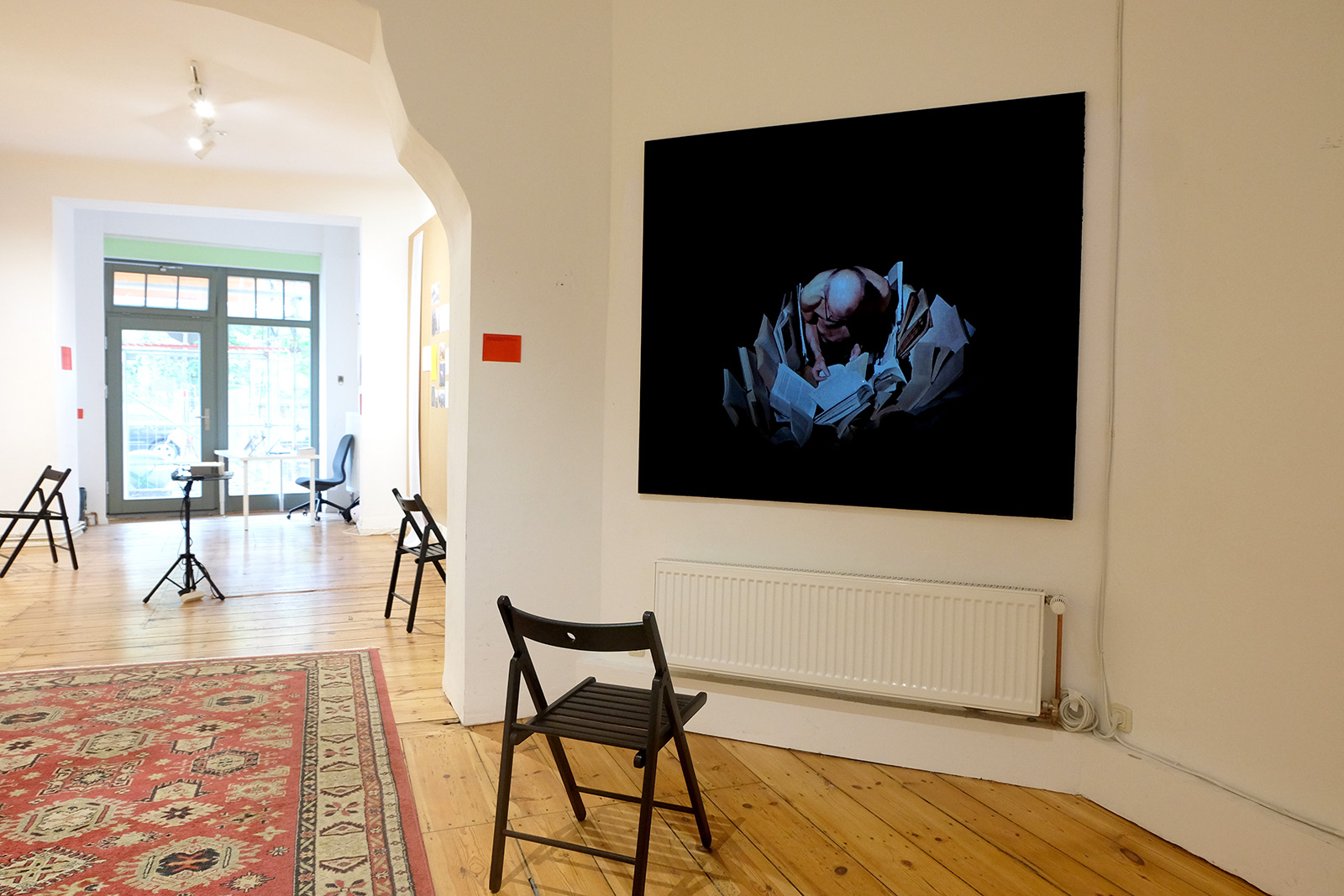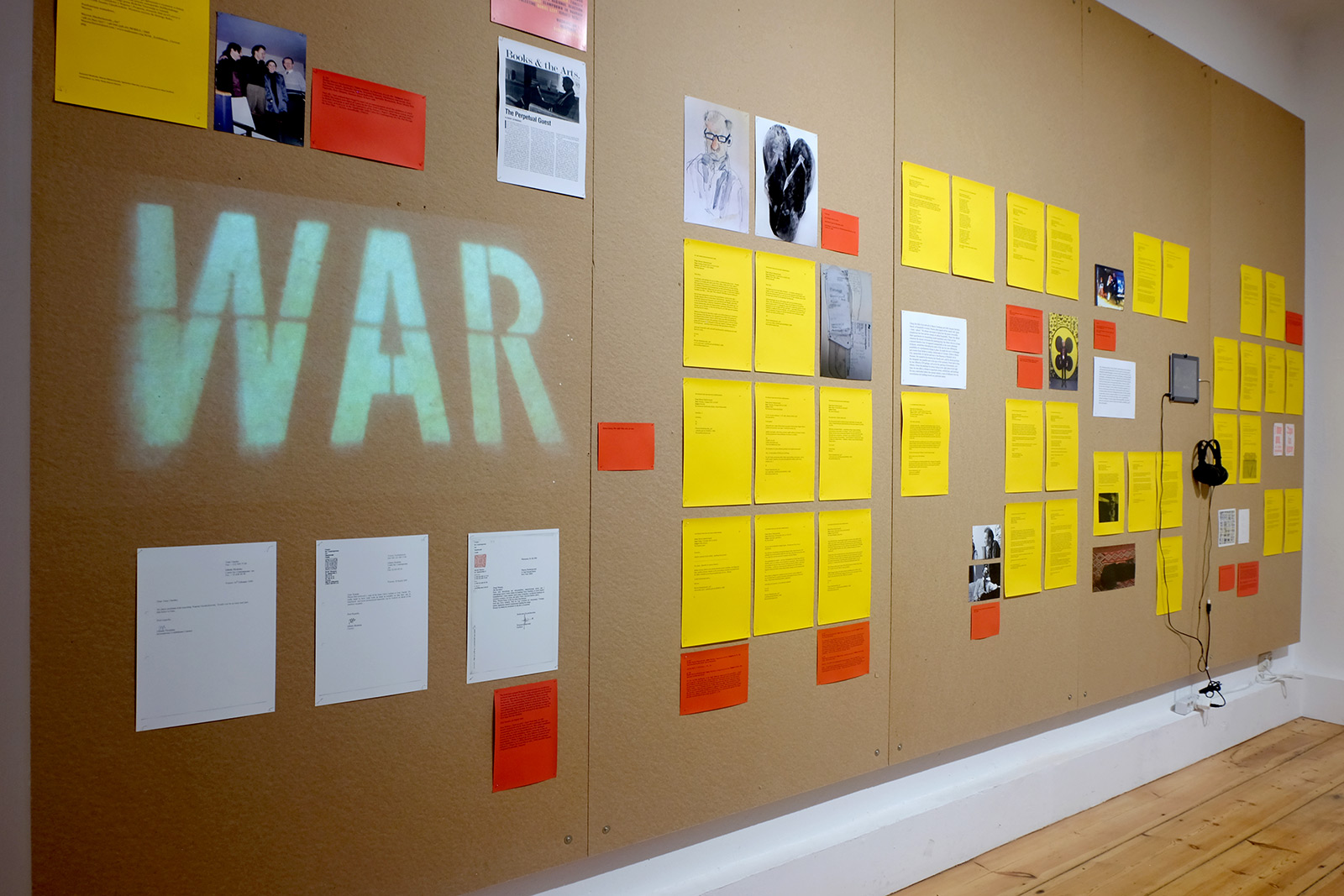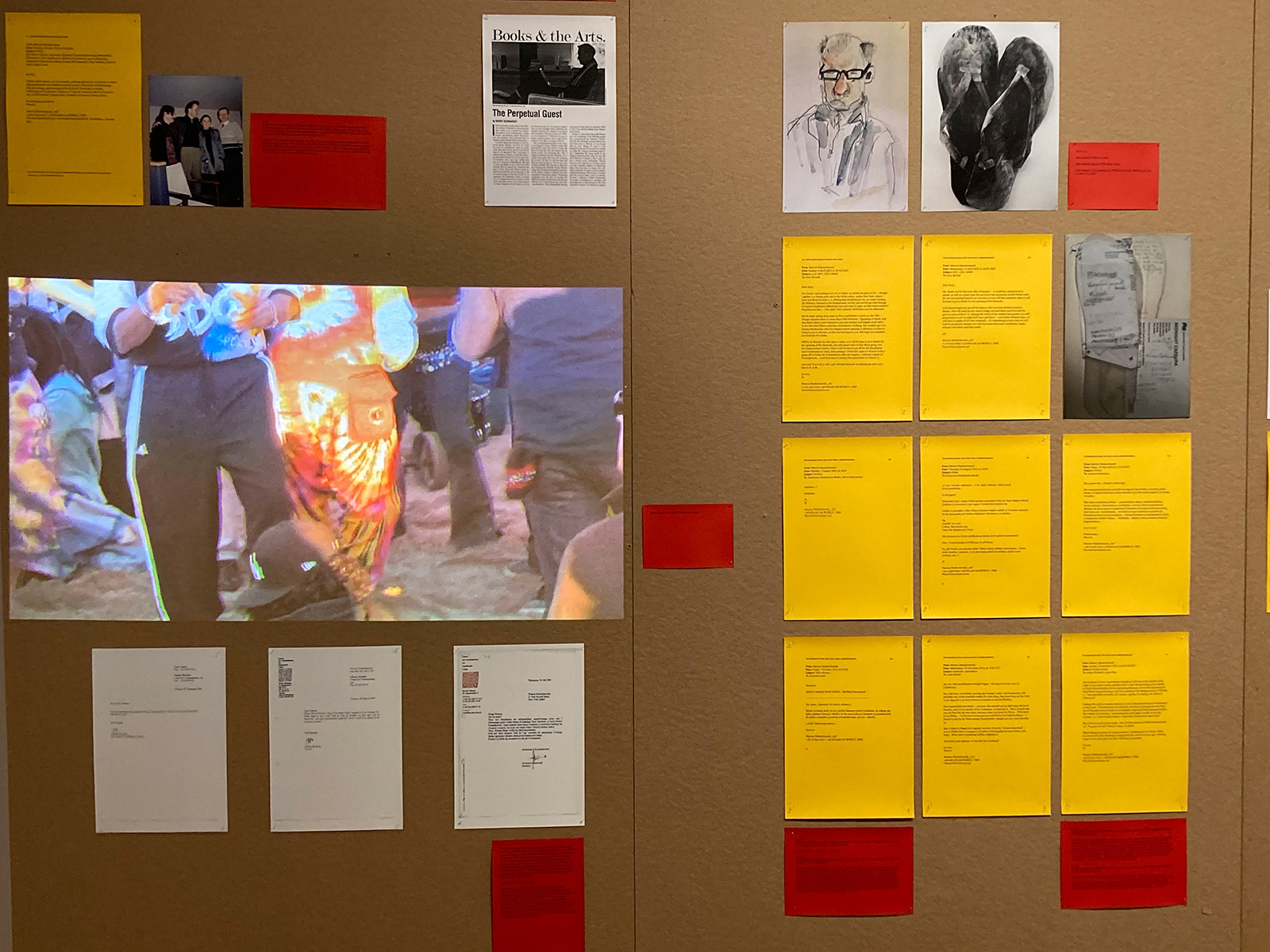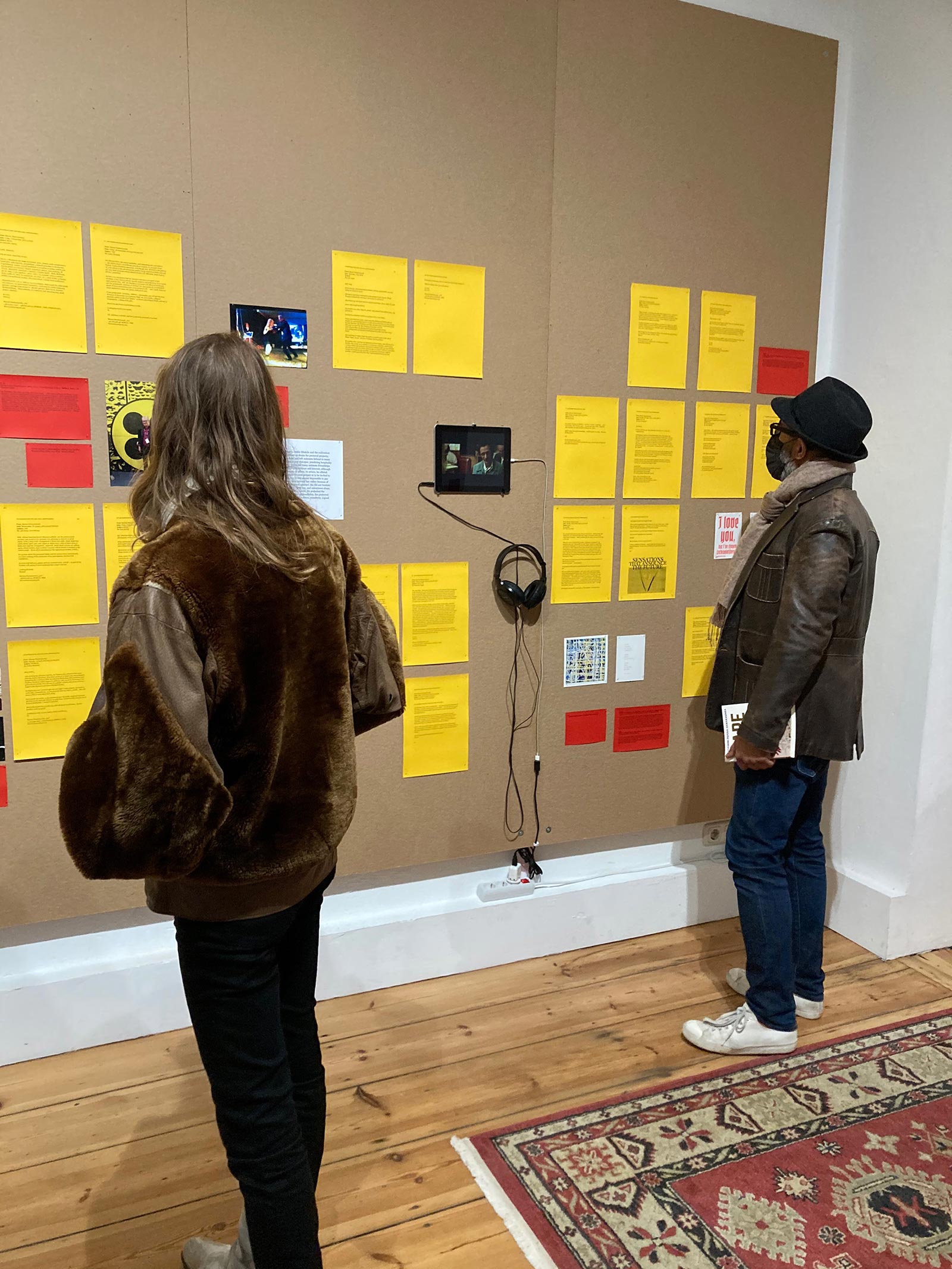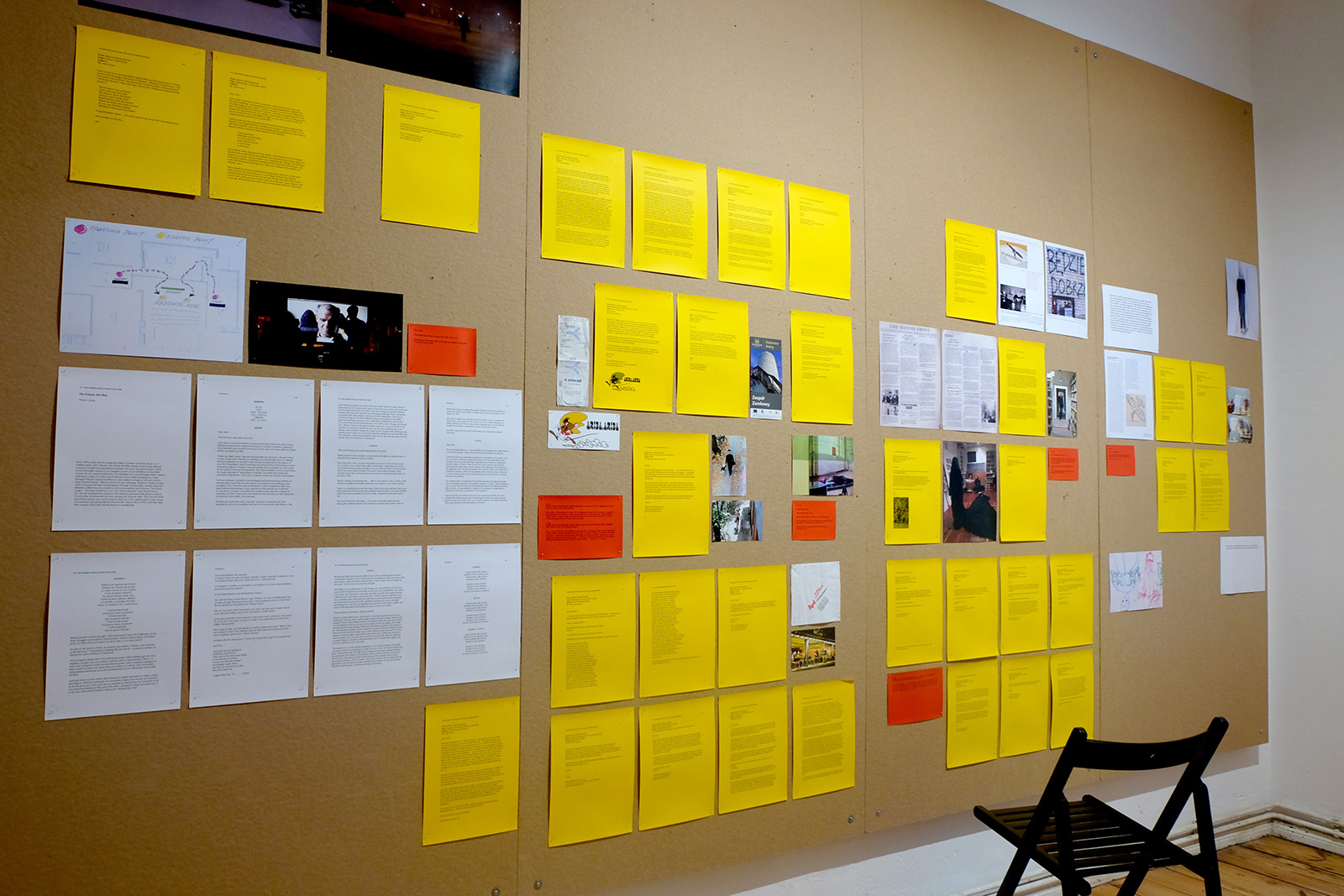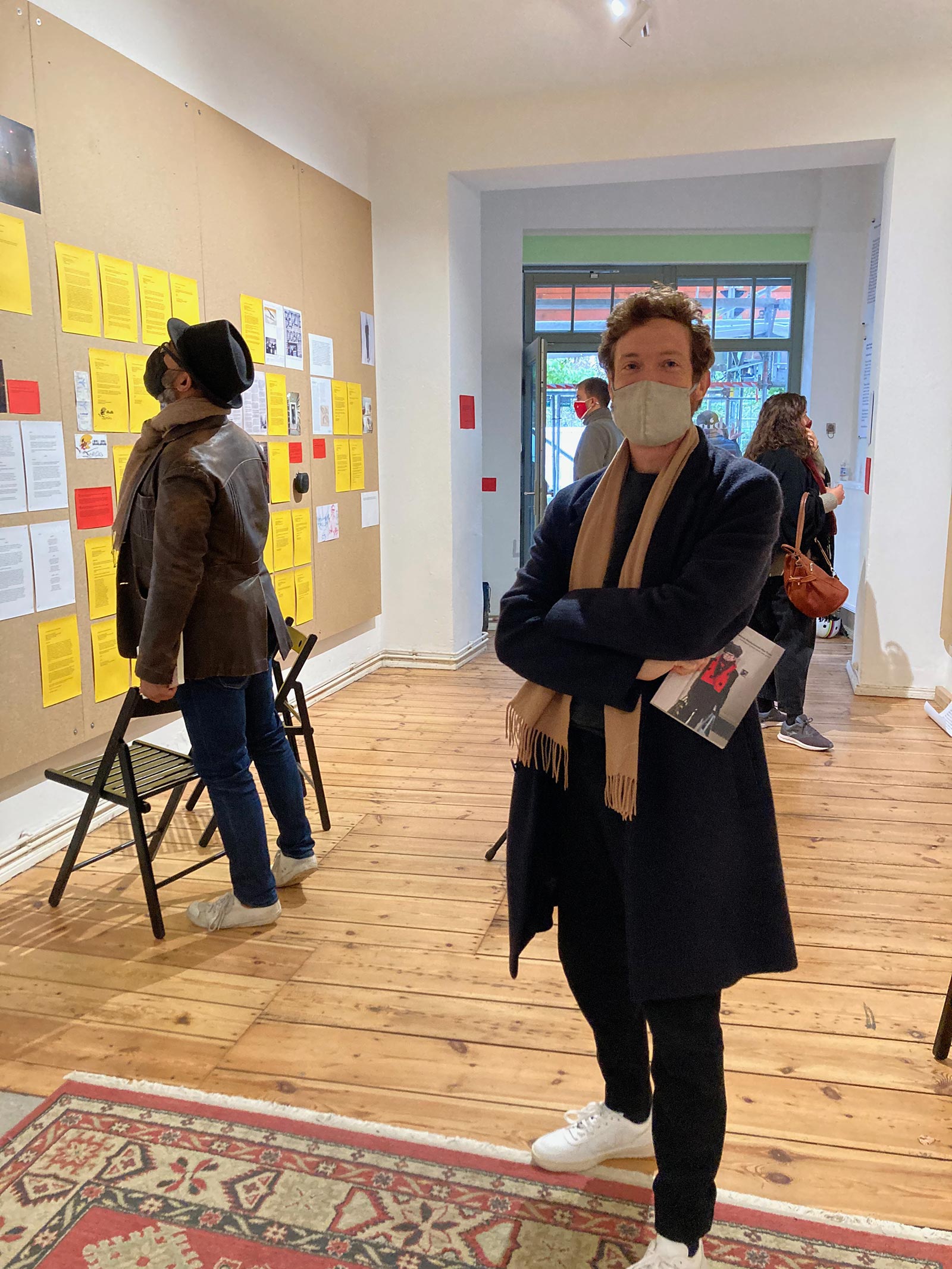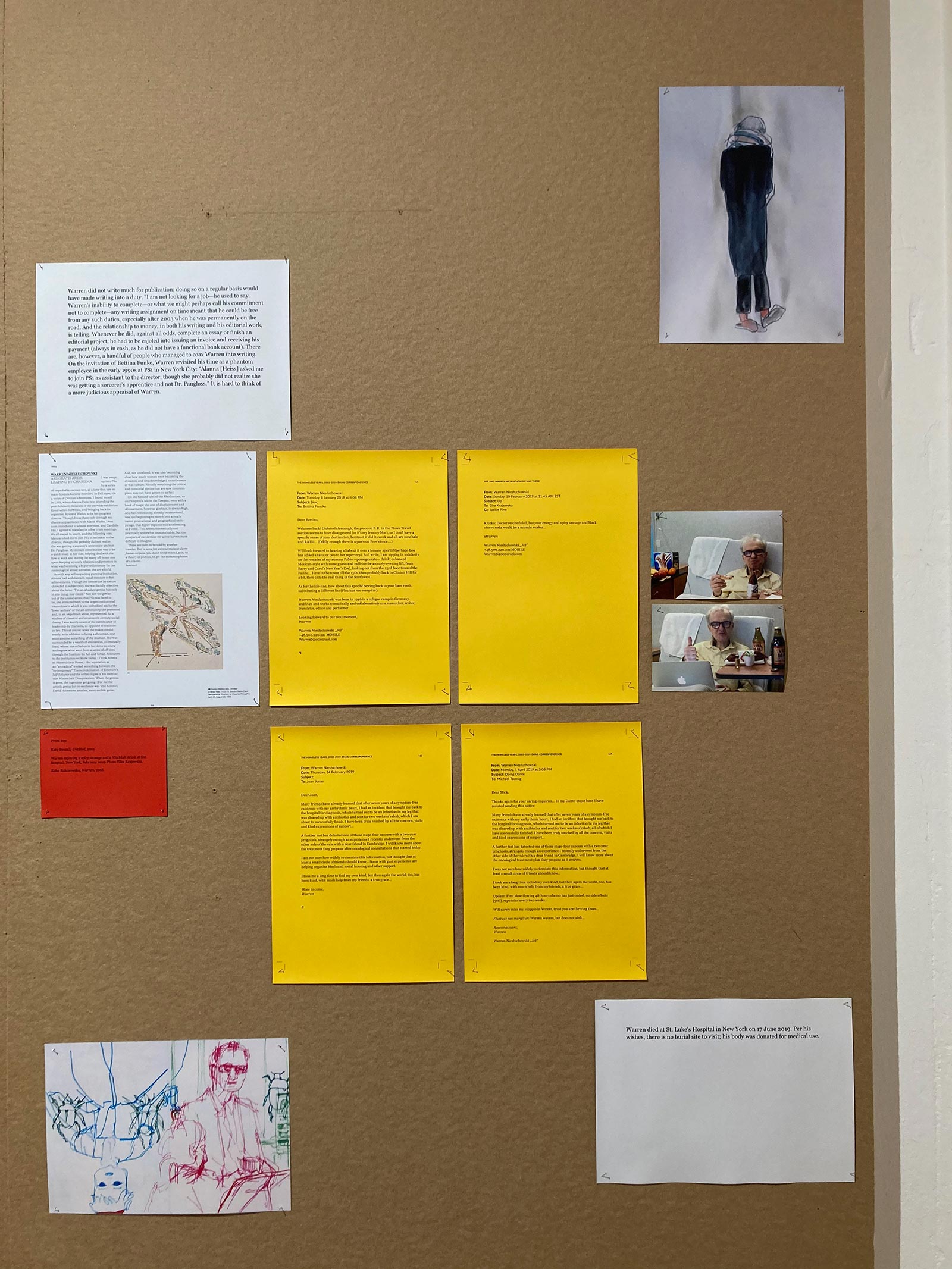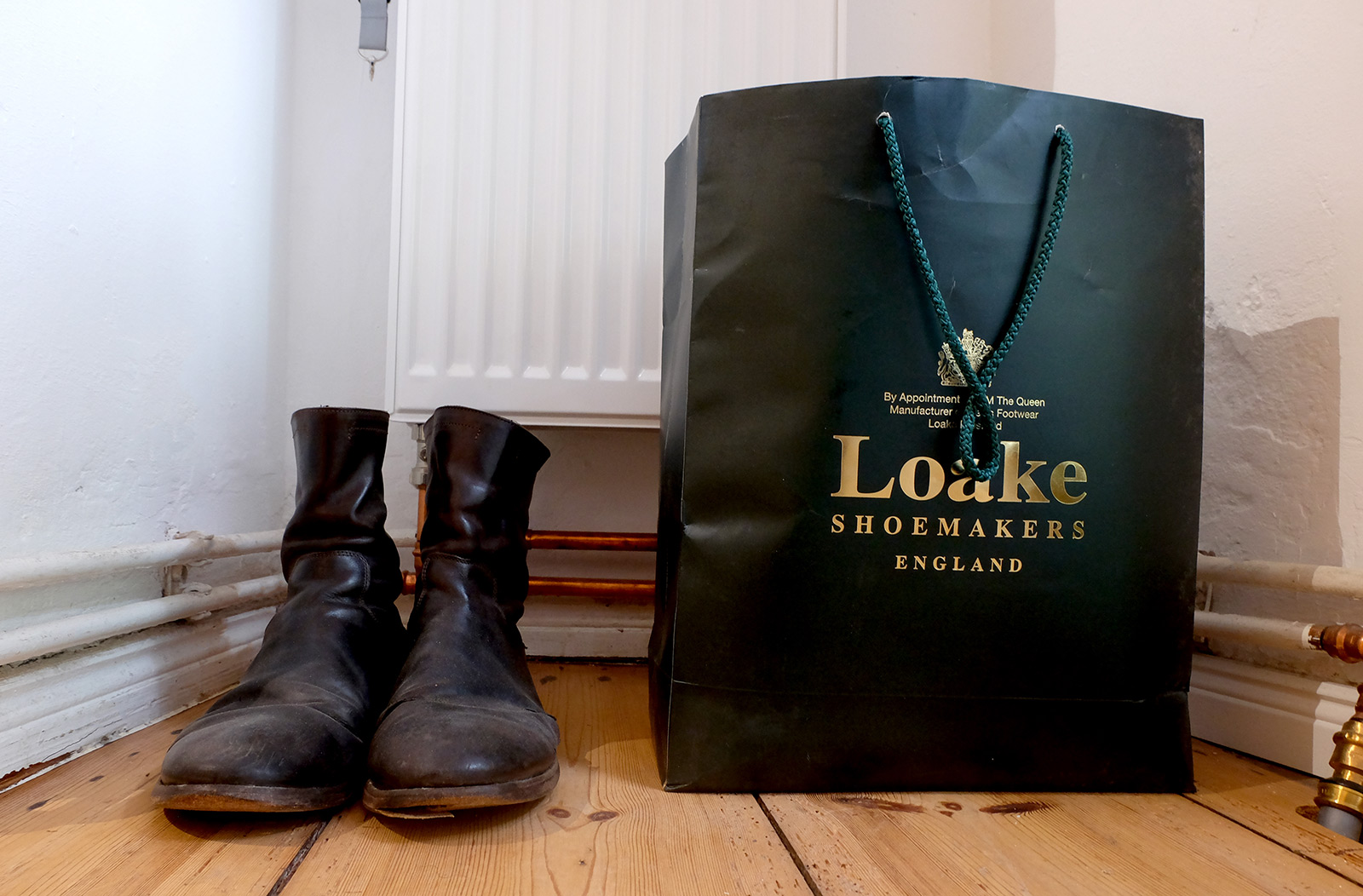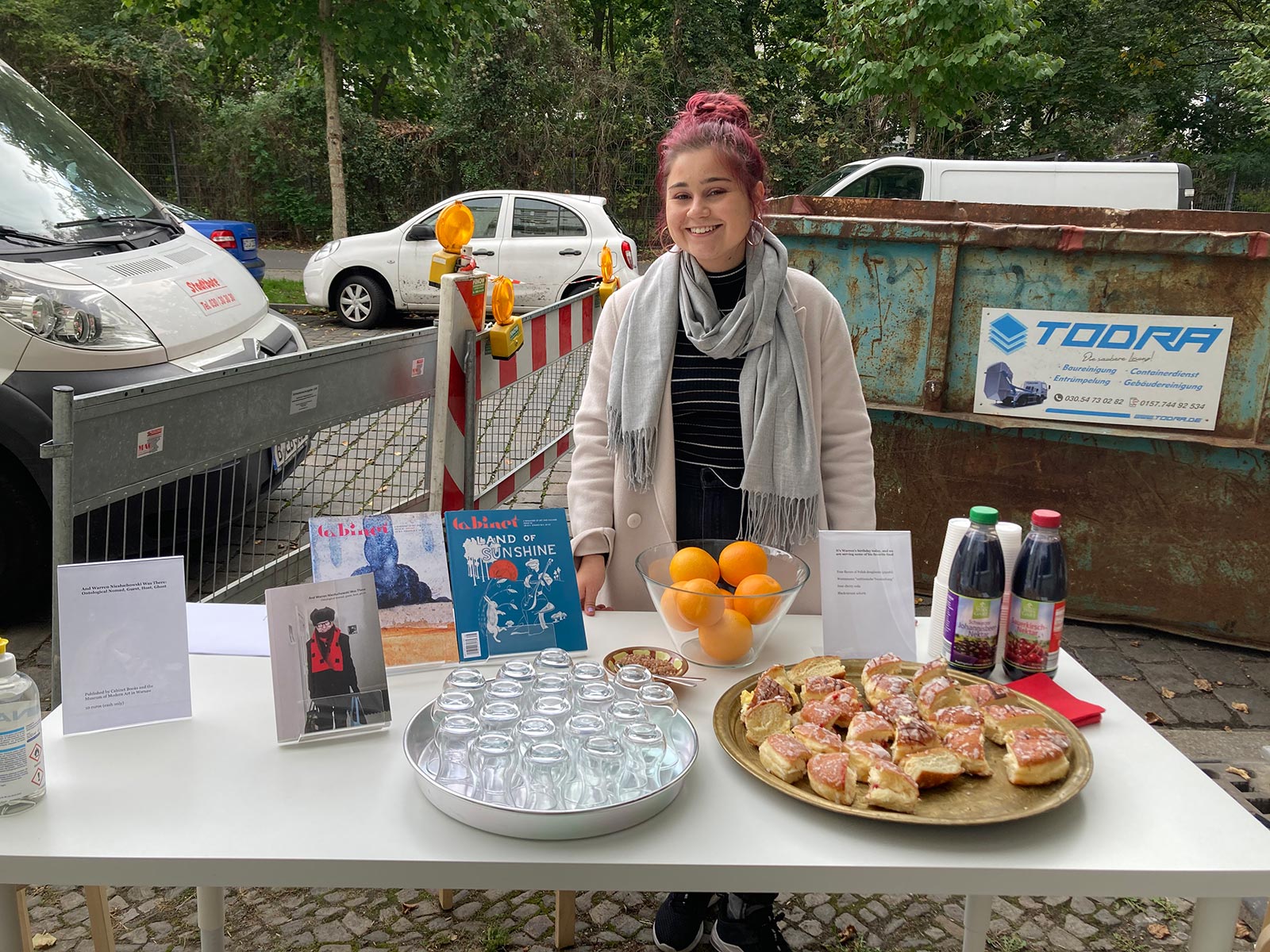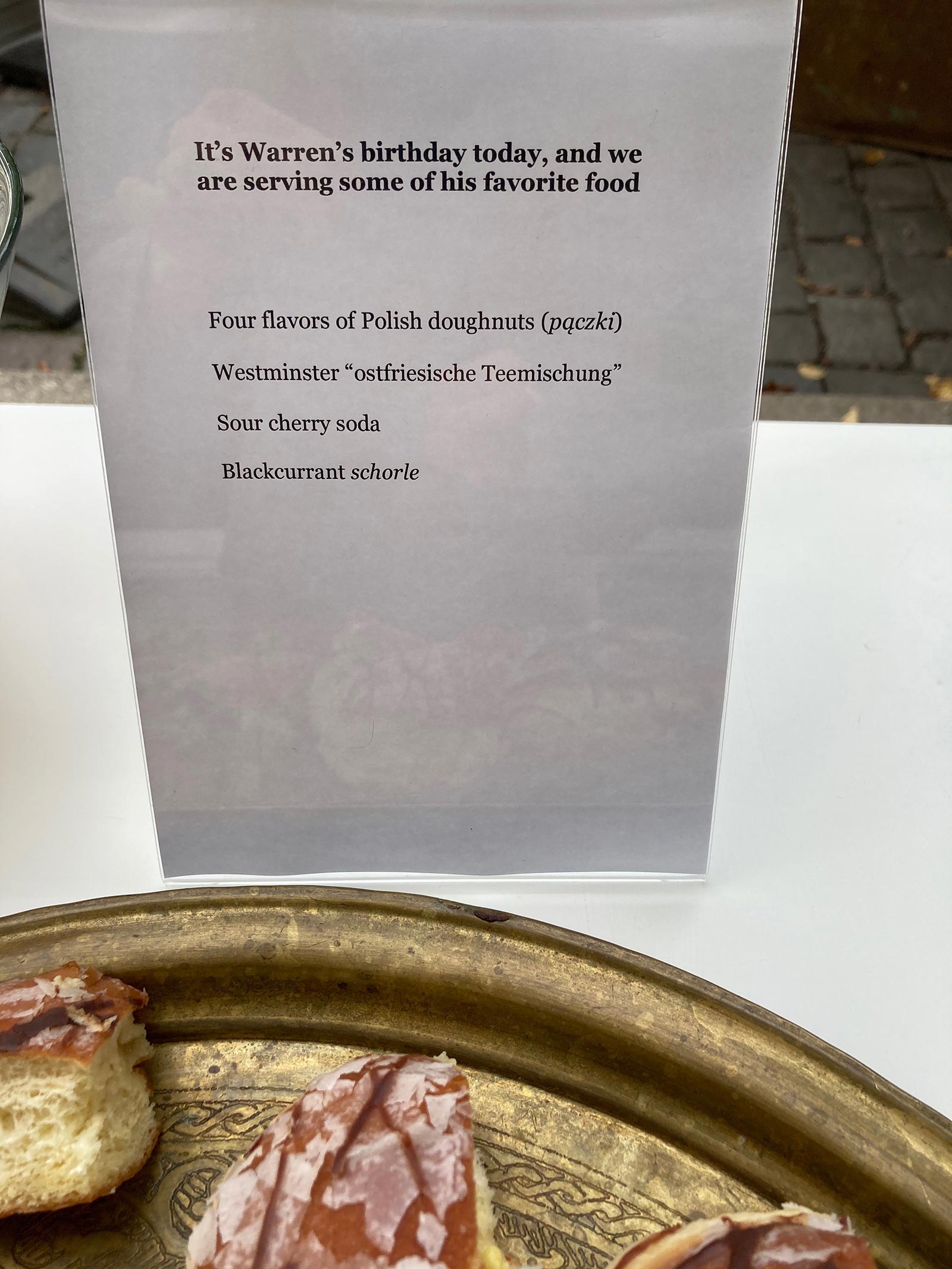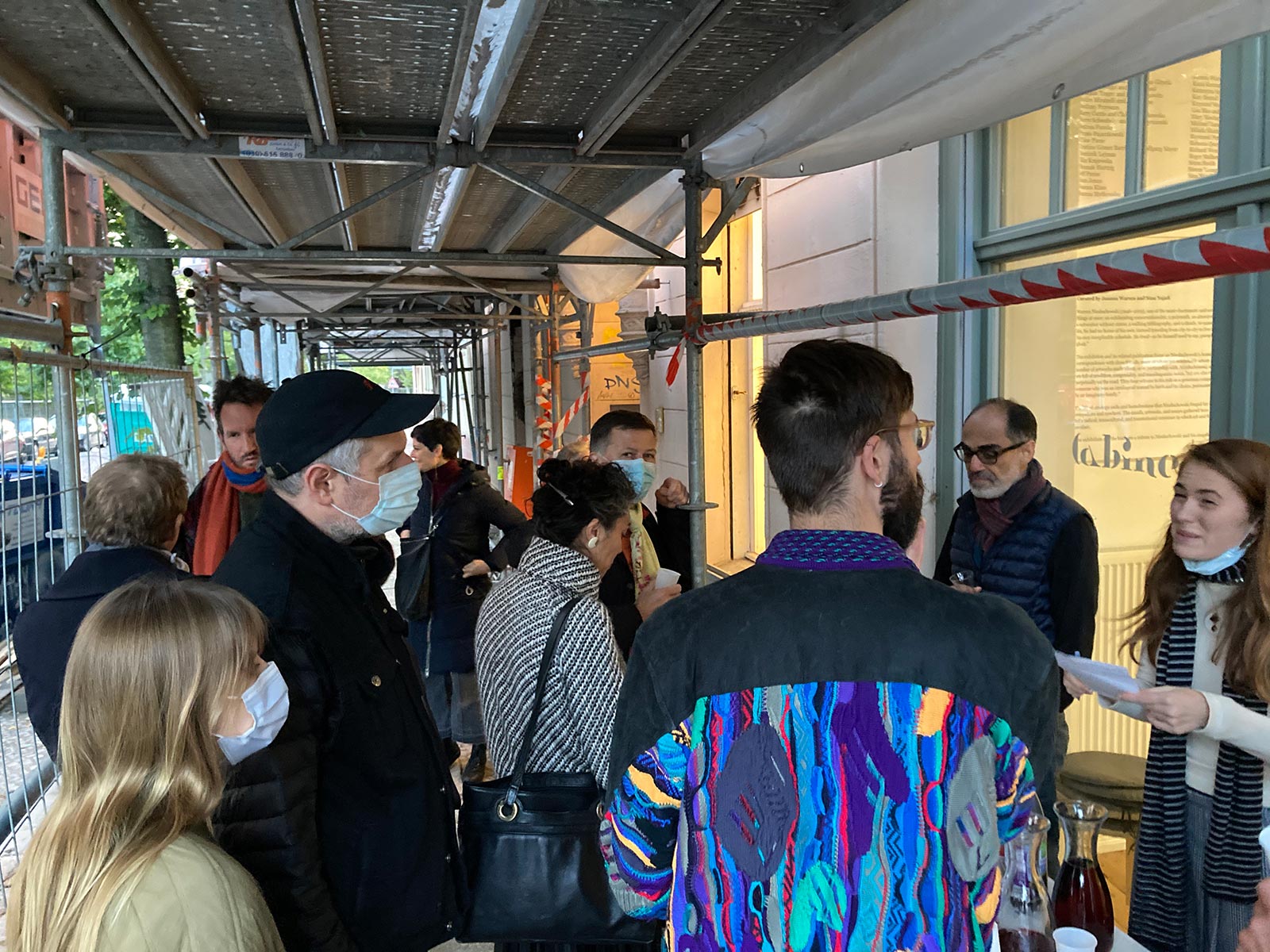Exhibition / “And Warren Niesłuchowski Was There: Guest, Host, Ghost”
Organized and edited by Joanna Warsza and Sina Najafi
Exhibition dates: 11 October–14 November 2020
Location: Cabinet, Ebersstraße 3, Berlin (map and directions here)
Gallery hours: Tuesdays, Thursdays, and Saturdays, 12–6 pm
Opening: Sunday, 11 October, 2–8 pm
Exhibition dates: 4 December 2020–12 January 2021
Location: Foksal Gallery Foundation, Warsaw
Exhibition dates: 3 September–31 October 2021
Location: Latvian Centre for Contemporary Art, Riga (as part of the festival “Survival Kit”)
Exhibition dates: 11 October–6 November 2022
Location: Cabinet Brooklyn, New York
Public Programs
Discussion / “The Philosophical Trope of ‘Homelessness’ and the Question of Ethics,” with Cecilia Sjöholm and Sven-Olov Wallenstein
Tuesday, 3 November 2020, 12:30–1:30 pm Eastern Standard Time / 6:30–7:30 pm Central European Time
Cold Calling / “Hello, I am a friend of …,” with Sina Najafi
Saturday, 14 November 2020, 6 am–12 pm Eastern Standard Time / 12–6 pm Central European Time
Discussion / “War After War,” with Simon Leung and Barry Schwabsky
Saturday, 5 December 2020, 12:30–2:00 pm Eastern Standard Time / 6:30–8:00 pm Central European Time
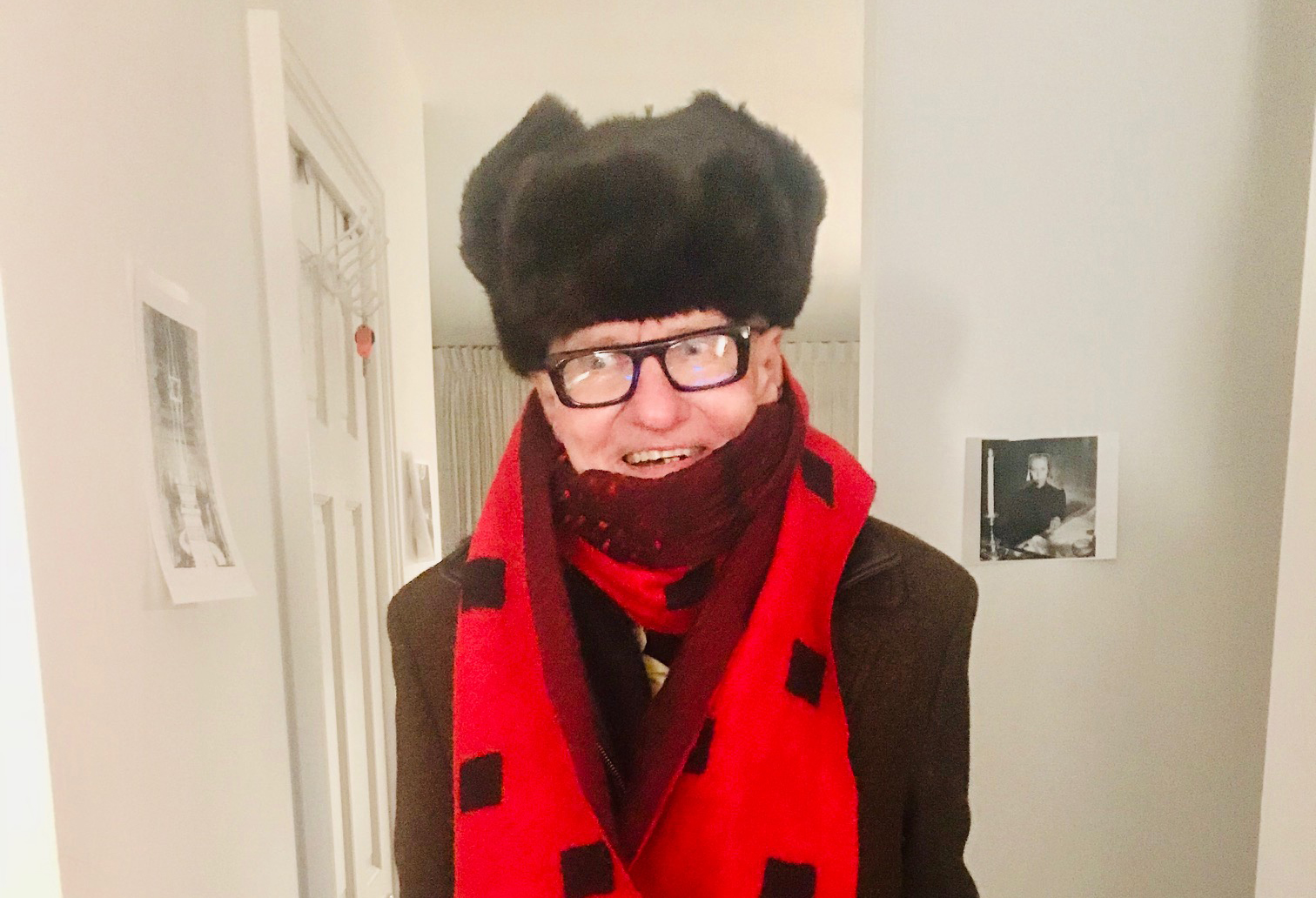
Sylvère got drunk and teased Diego, something about politics, and Diego got mad and tossed his drink in Sylvère’s face. And Warren Niesluchowski was there, and John and Anya. … Warren’s a friend, an artworld personality and critic, a smart and cultivated guy. … Warren knows everyone in the artworld.
—Chris Kraus, I Love Dick, 1997
Warren Niesłuchowski (1946–2019), one of the most charismatic and eccentric figures in the art world, was many things at once: an exhilarating conversationalist, a polymath, an attentive companion of artists, a polyglot translator, a networker without status, a walking bibliography, and a dandy, to name a few. And from 2003 till the end of his life, he had no home of his own, instead traveling on a minimal budget from city to city to live as the guest of others, coming and going on his own inexplicable schedule. He lived—as he himself used to say, echoing Derrida and Duchamp—the life of a “guest, host, ghost.”
The exhibition and the publication focus on Niesłuchowski’s homeless years, and feature his email correspondence with close friends, many of whom are remarkable artists and intellectuals in their own right; a number of artworks made about, or in partnership with, Niesłuchowski; and documentation of his travels. The emails are full of erudition, congeniality, and translinguistic twists, but are also marked by the emotional burden of being perpetually on the road. They bear witness to his role as a generous companion to others and to the inheritance of someone who was an ontological nomad by birth and by choice, permanently looking for what he called “an adoption by an imaginary family.”
In some sense, Niesłuchowski inherited his fundamental sense of dislocation. He was born Jerzy, later George or “Jeż,”to Polish parents in 1946 in a displaced persons camp near Munich. Five years later, his family emigrated to the United States, where they found themselves in New Bedford, Massachusetts. In 1968, after being drafted to serve in Vietnam, George deserted the army and fled the country for Paris. There, a lucky encounter with a friendly Englishman named Warren who loaned him his passport meant that he could continue to evade the US government. Before long, George—now Warren, after placing his own photo in the British passport—had joined the legendary Bread and Puppet theater company on their trip to Iran. His drive toward a peripatetic existence was to find its fullest expression in the last sixteen years of his life, after he gave up his New York apartment and began to live as a perpetual guest of friends and acquaintances in North America and Europe.
It should be said that his was not, other than at beginning of his life, a forced migration under the inhuman circumstances that many people on the planet are experiencing today. Niesłuchowski had the privilege of deciding to be “out of place,” to avoid any defined role, and to inhabit the periphery of social norms. His life was one of strategic exile and ontological homelessness in which he felt at home everywhere, and nowhere. The emails, artworks, and essays gathered here offer a complex picture of someone who led a radical, transcultural, and transnational existence in which art and life were barely distinguishable from one another.
Contributors
Adam Szymczyk
Agnieszka Taborska and Marcin Giżycki
Albrecht Pischel
Alexander Nagel and Amelia Saul
Amanda Trager and Erik Moskowitz
Andre Mirabelli and Jackie Pine
Andrzej Przywara
Barry Curtis and Claire Pajaczkowska
Barry Schwabsky and Carol Szymanski
Bettina Funcke
Bruno Pajaczkowski
Chloe Piene
Cristina Gómez Barrio and Wolfgang Mayer
Dominik Lejman
Elka Krajewska
Hannah Hurtzig
Jeff Preiss
Joan Jonas
Joanna Klass
Joanna Mytkowska
Joanna Warsza
Kasia Korczak and Payam Sharifi
Katarzyna Szotkowska-Beylin
Katy Bentall
Krzysztof Wodiczko
Lisa Blas and Thierry de Duve
Mary Niesłuchowska
Michael Taussig
Milada Ślizińska
Raymond Pettibon
Rebecca Quaytman
Richard Wentworth
Roger Malbert
Seton Smith
Simon Leung
Sina Najafi
Yvette Mattern
Zuzanna Janin
Managing editor: Joanna Szulc
Graphic design: Józefina Chętko
An obituary by Joanna Warsza is available here.
For press about this exhibition, see Arts of the Working Class, Szum (Polish), and Przekrój (Polish).
Book co-published by Cabinet and the Museum of Modern Art
in Warsaw. Exhibition organized by Cabinet in partnership
with Foksal Gallery Foundation.
